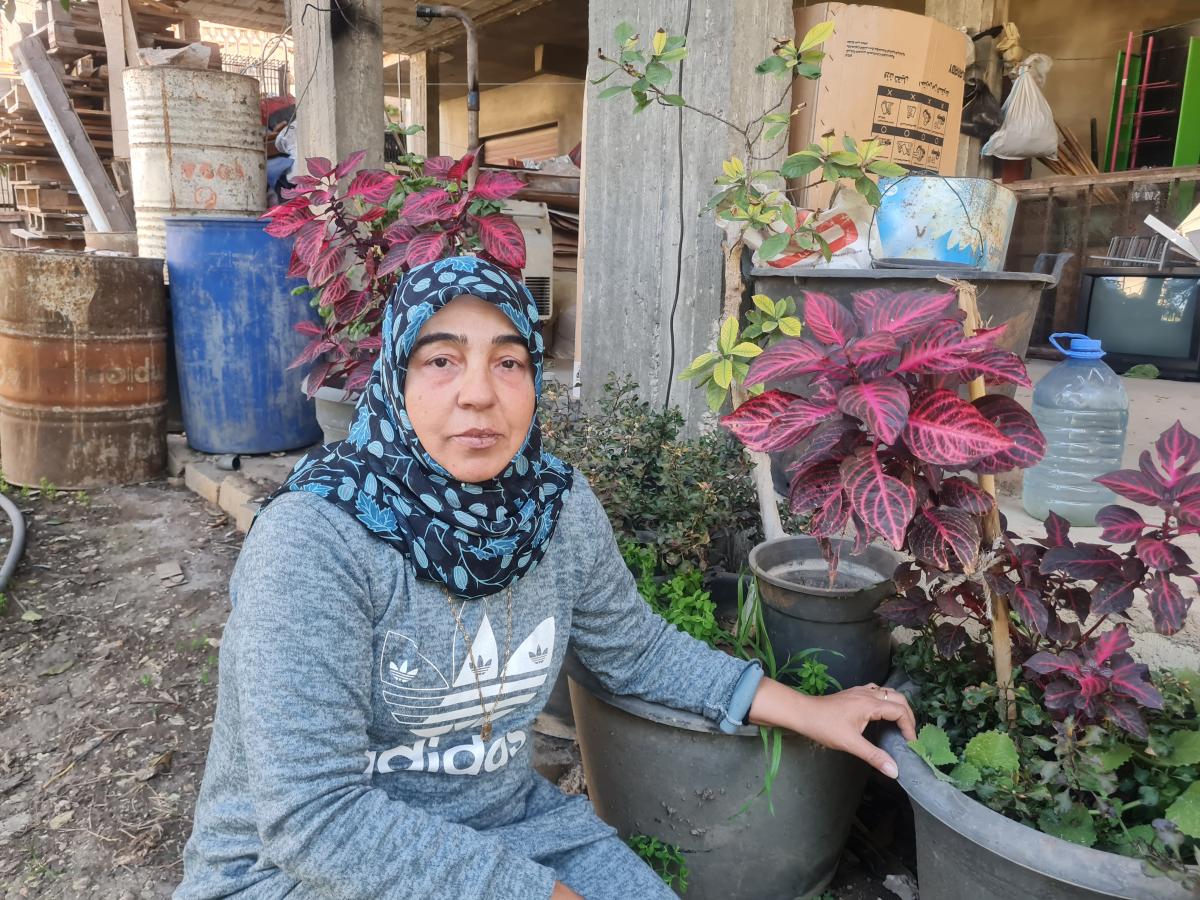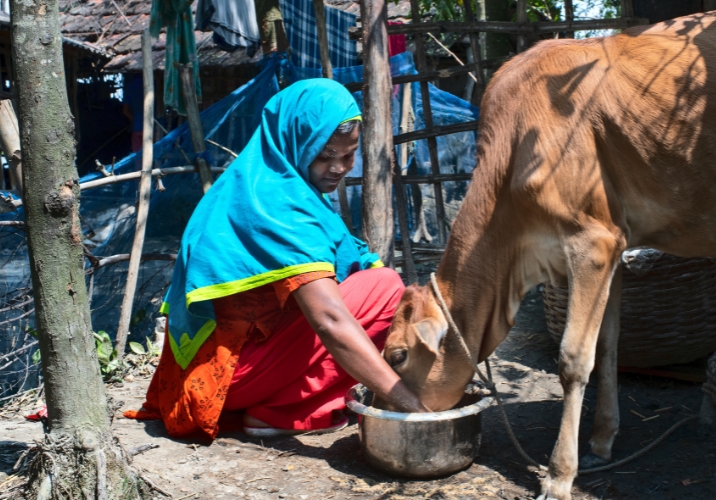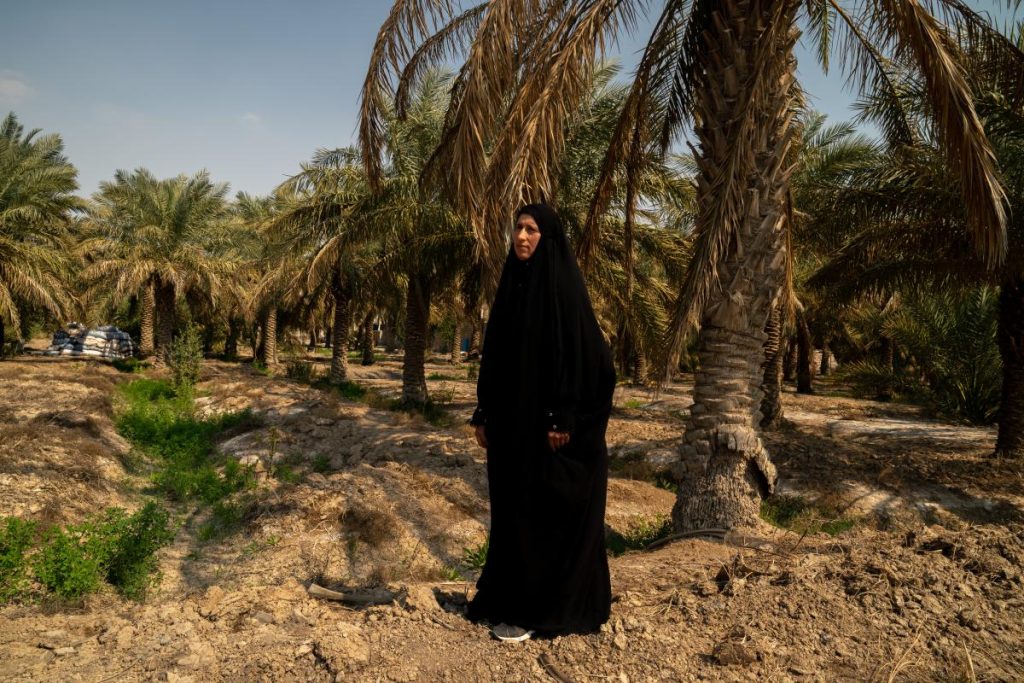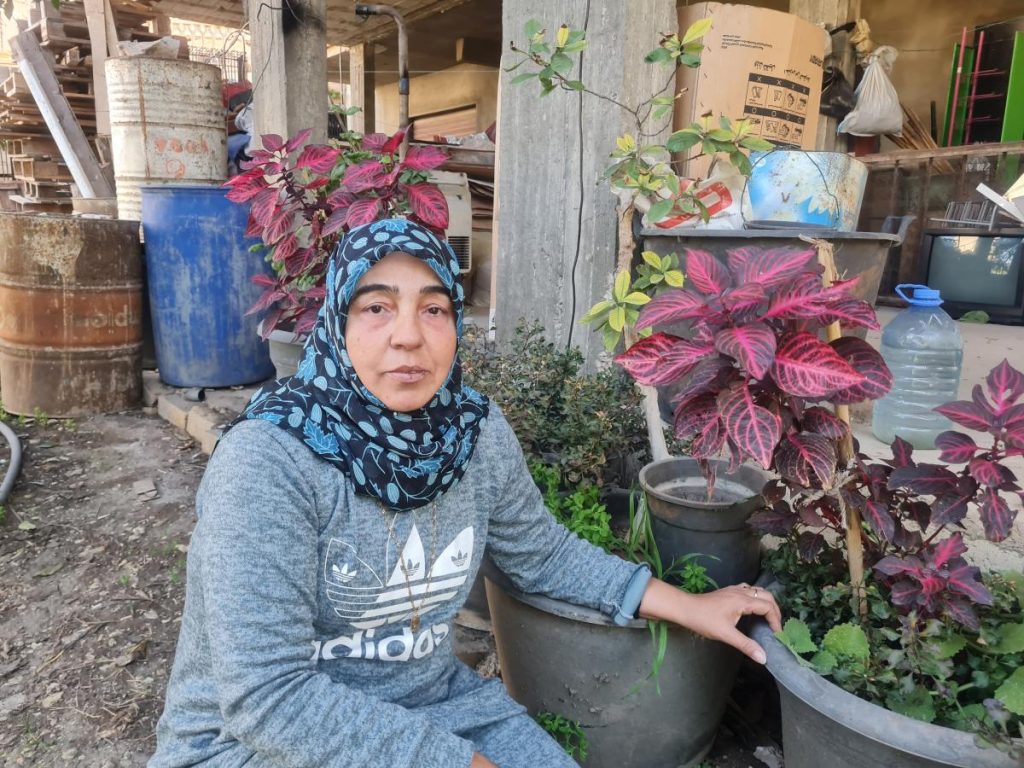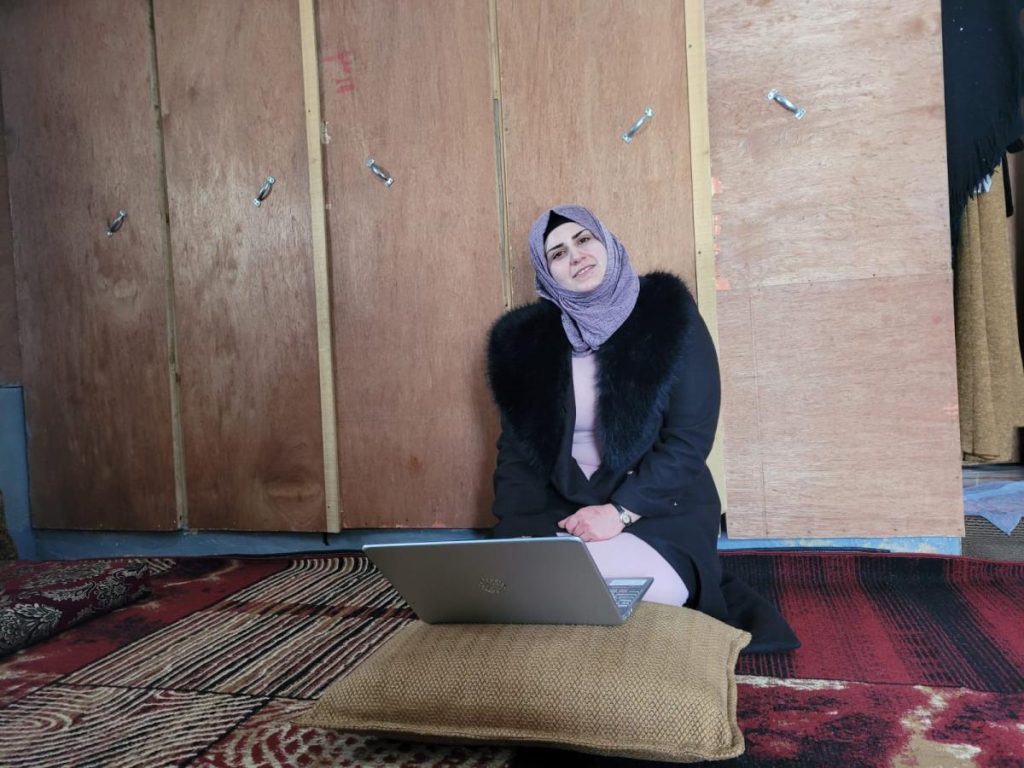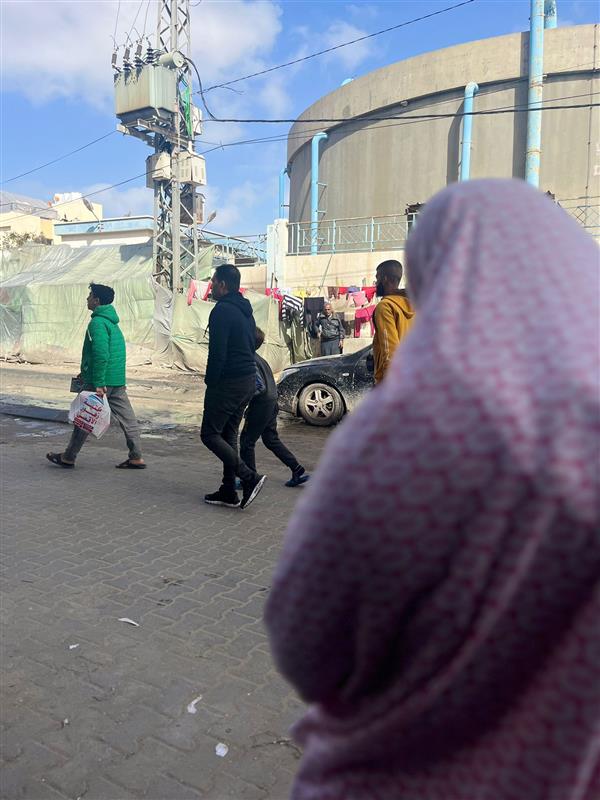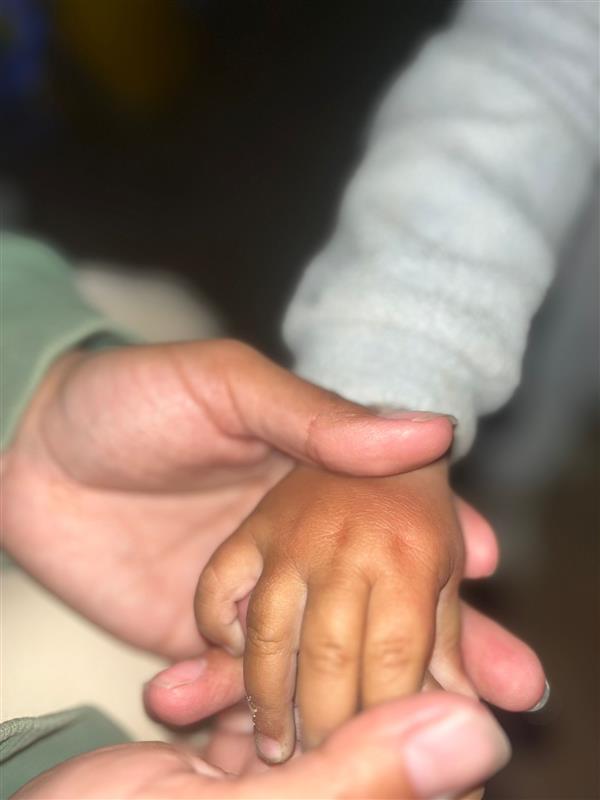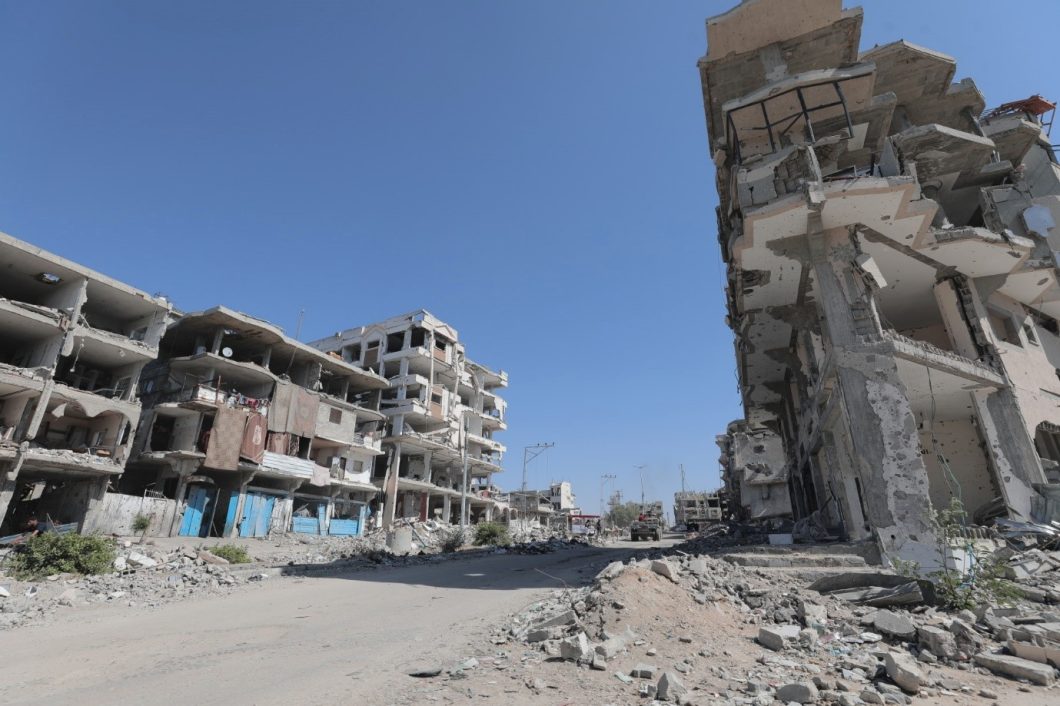Zainab, Syria: empowering Change
A young Zainab shouldered the responsibility of raising her siblings alone after losing both parents. For Zainab, this was the fire that sparked her fighting spirit.
“We faced hardship,” Zainab says. “But it fueled my drive to work hard.”
Overcoming societal norms that often hold women back, this is exactly what she did. While tradition dictated staying home, Zainab defied expectations by embracing new ideas to build a better life.
“Zainab, described by the other women in her village as someone whose “boldness and enthusiasm helped us overcome the fear we lived with and ignore society’s view of us as a working woman.”
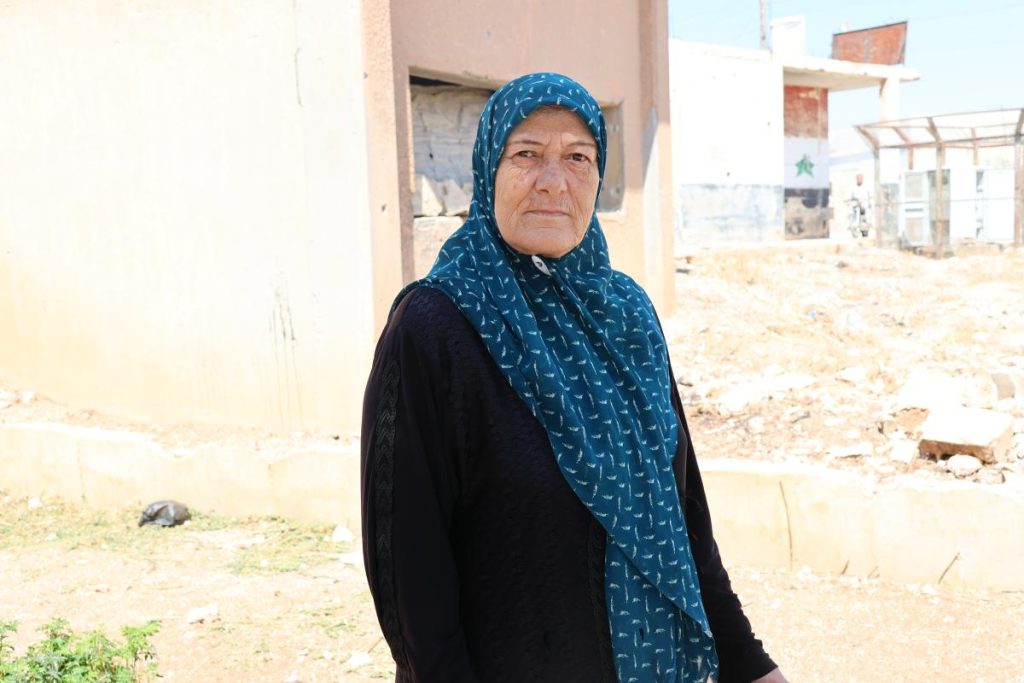
Portrait of Zainab. © Action Against Hunger
“Working the fields brought me peace,” she says, “but it was hard work.”
Action Against Hunger first met Zainab at a livelihood training course. Her potential and openness to new beginnings was immediately obvious. During training on how to preserve food Zainab not only learned new skills, but also helped and inspired others.
Our project offered an opportunity – a chance for Zainab and other women to build their own businesses and a source of income. We didn’t just hand out money; we provided ongoing support and guidance to ensure the success of their ideas.
“The grant was a catalyst,” Zainab told us. “It empowered me to purchase the tools and material I needed to breathe life into my new business and propel its growth.”
Of course, there were challenges. Local customs frowned upon women working independently. But Zainab used her influence to convince others. Her patience and resilience earned her the respect of the entire village, men and women alike.
“Starting a business wasn’t easy,” Zainab reflects. “Getting supplies often meant travelling long distances to find a market to sell our products.” But Zainab wouldn’t be deterred. She and other women joined forces, sharing transportation costs and supporting each other every step of the way.
Zainab’s hard work and high-quality products quickly found a loyal following at the weekly bazaar. Soon, customers were asking for her by name, some even traveling to her village just to buy her products.
Her success became an inspiration to others. Five other women followed in her footsteps, starting their own businesses and transforming their lives. “Zainab’s courage gave us the strength to break free from fear,” shares one neighbour. “Seeing her success changed our husbands’ minds too. They realised the power women have to contribute to the family’s well-being.”
Today, Zainab is a trusted advisor, sharing the knowledge she gained with other women. Her life is no longer a cycle of seasonal work and uncertainty. With her thriving business, Zainab can now support herself and her family year-round.
Hurriyah, Syria: championing change in the fields
We were first introduced to Hurriyah through her father, a farmer on his land and the headmaster of the local school. As the daughter who had accompanied him to the fields every morning since childhood, they shared a strong bond.
At our meeting, she stood out from the crowd. Despite the presence of nearly 135 men and women, her questions reflected her extensive knowledge and experience in agriculture. It was clear she wasn’t just curious, she was passionate about farming.
Hurriyah’s village is steeped in tradition. Farming and raising livestock have been their way of life for generations. But times were tough. The crisis had hit them hard, making farming a risky gamble. Scarce resources and rising costs meant a bad harvest could be devastating.
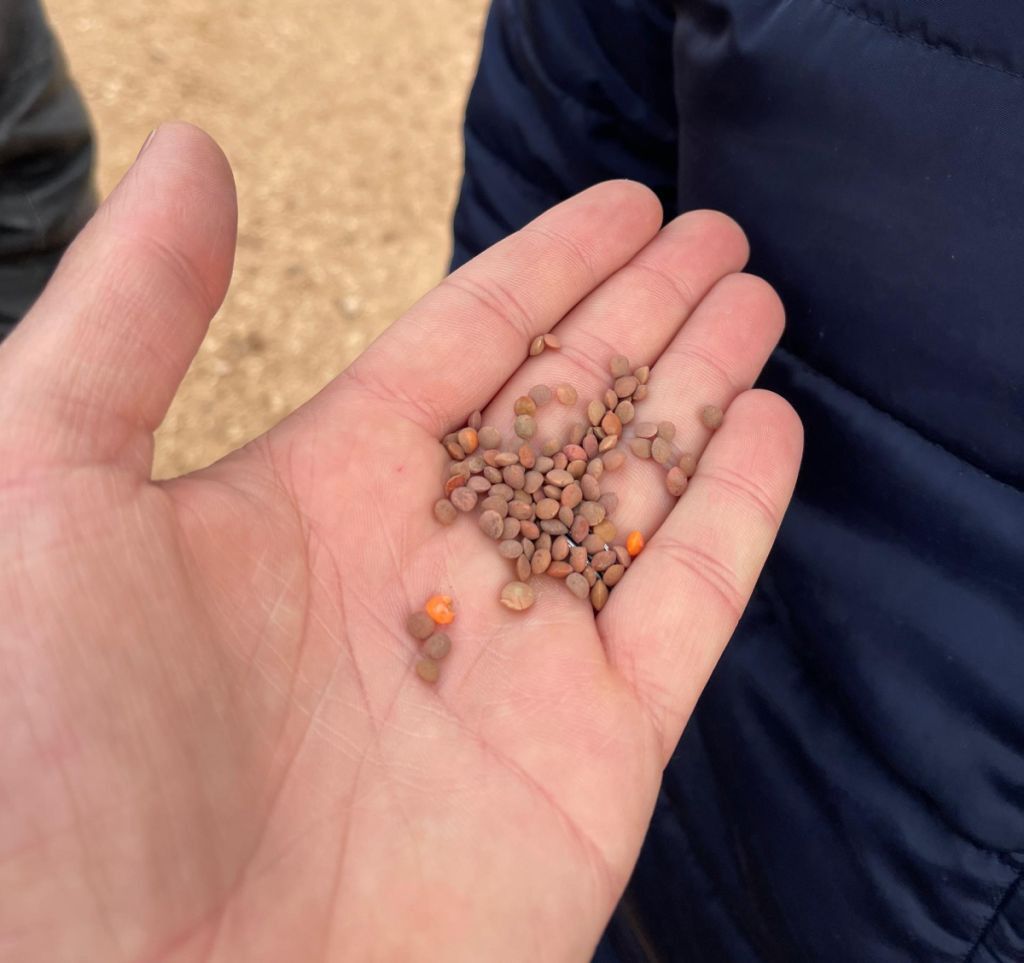
Lentil seeds provided by Action Against Hunger as part of the conservation agriculture approach.
We’d been meeting with families for months, introducing them to conservation agriculture – a new approach that promised better yields. But changing age-old traditions isn’t easy. Even though we’d built trust through past projects, some farmers were understandably wary. What if it meant a failed harvest? They couldn’t afford that risk.
That’s where Hurriyah played a pivotal role. A natural leader with years of experience, she was someone everyone listened to.
“We women farmers started talking about conservation agriculture everywhere we went,” Hurriyah says. “Family gatherings, village events – it became our main topic. Most of our conversations were about conservation agriculture.”
Her enthusiasm was contagious. Hurriyah’s encouragement, especially among women, helped convince over 50 farmers to give new farming methods a try.
“During the training exams, I’d tell her my answers and she’d write them down. I trust her completely,” one woman shared. Hurriyah even simplified the trainers’ explanations, using their local dialect to make the training accessible to everyone.
Now, as the lentil seeds sprout, a sense of hope fills the air. “The benefits of this new farming method will show themselves over time, guaranteeing better yields,” Hurriyah says proudly. “We’re grateful to Action Against Hunger for being part of this transformation.”
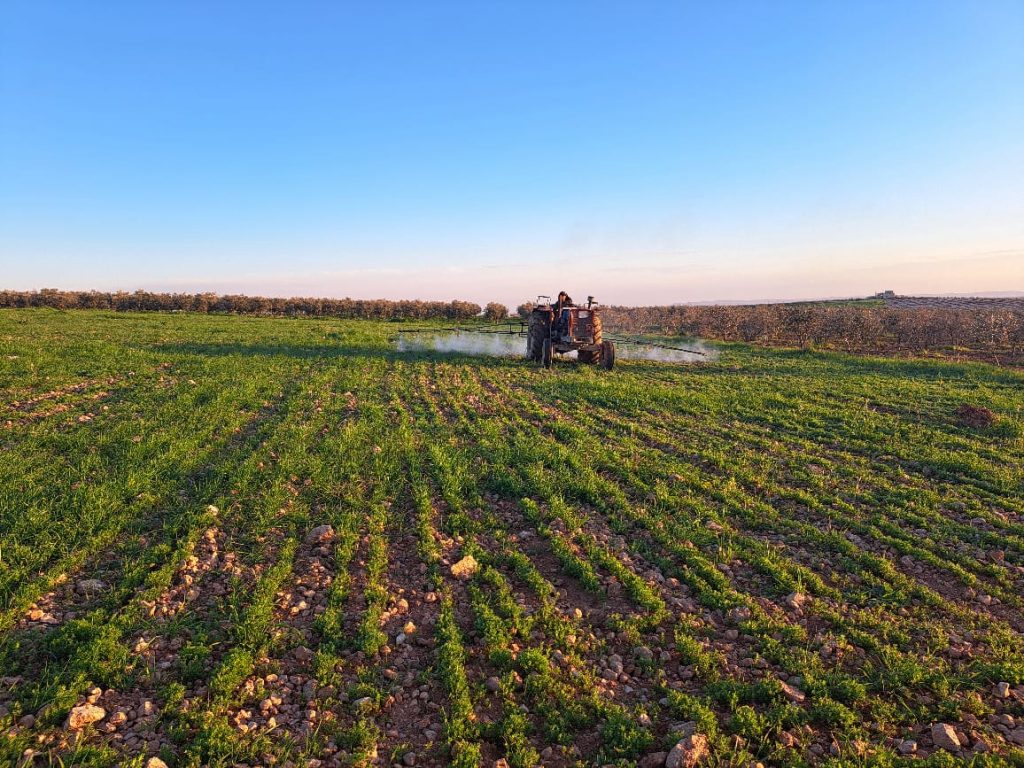
Lentil crops grown using the method of conservation agriculture. © Action Against Hunger

